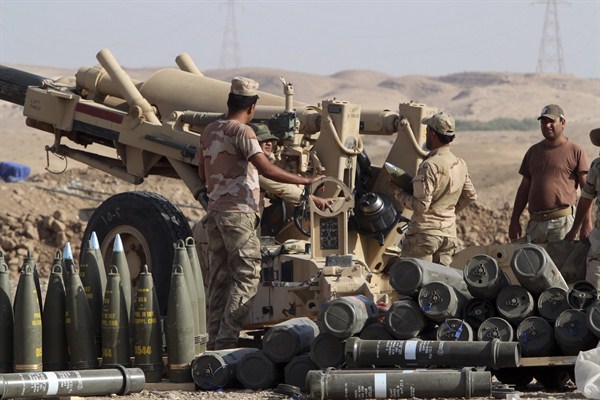Developments over the past year in Syria and Iraq suggest many parallels between the two countries. From the separatism of the Kurds and the fight against the self-declared Islamic State to the expansion of Russia’s presence and influence, the two states seem to be following similar trajectories. But a closer look suggests quite distinct realities. Syria clearly seems to be headed toward implosion, even if the bigger picture of chaos obscures at least one smaller one that could inspire optimism for the future. By contrast, Iraq’s narrative today is not one-dimensional—in fact, the signs point in many directions: The country is neither unraveling nor making great progress toward reconciliation and stability.
Iraq’s Kurdish region has been essentially self-governing since the early 1990s, and overall the Kurdish Regional Government (KRG) has been a great success, expanding economic opportunity and demonstrating to the rest of Iraq a culture of political competition and contestation. It even moved beyond the entrenched two-party system historically dominated by Barzani’s Kurdish Democratic Party and the Patriotic Union of Kurdistan, with the emergence in 2009 of a reformist party called Gorran—which means Change in Kurdish—on an anti-corruption platform. Gorran is now the second-largest party in the KRG.
But today it’s fair to wonder whether the KRG’s democratic character is at risk. The leadership is now operating extra-constitutionally: President Massoud Barzani has already extended his term in office beyond the legally permitted two four-year terms, and the recent expiration of the mutually agreed-upon extension of his mandate has provoked popular discontent and even sporadic violence in the eastern city of Sulaimaniyah, the stronghold of the opposition. So despite the successes of the past, the dominance of the Barzani clan in key positions and the power of the KDP party and its patronage system have raised uncomfortable questions about whether the underlying political culture of the KRG is still more traditional and tribal than rules-bound.

